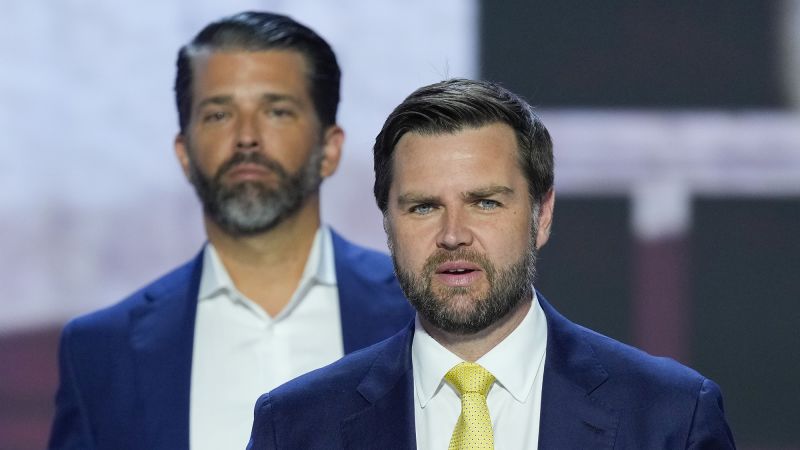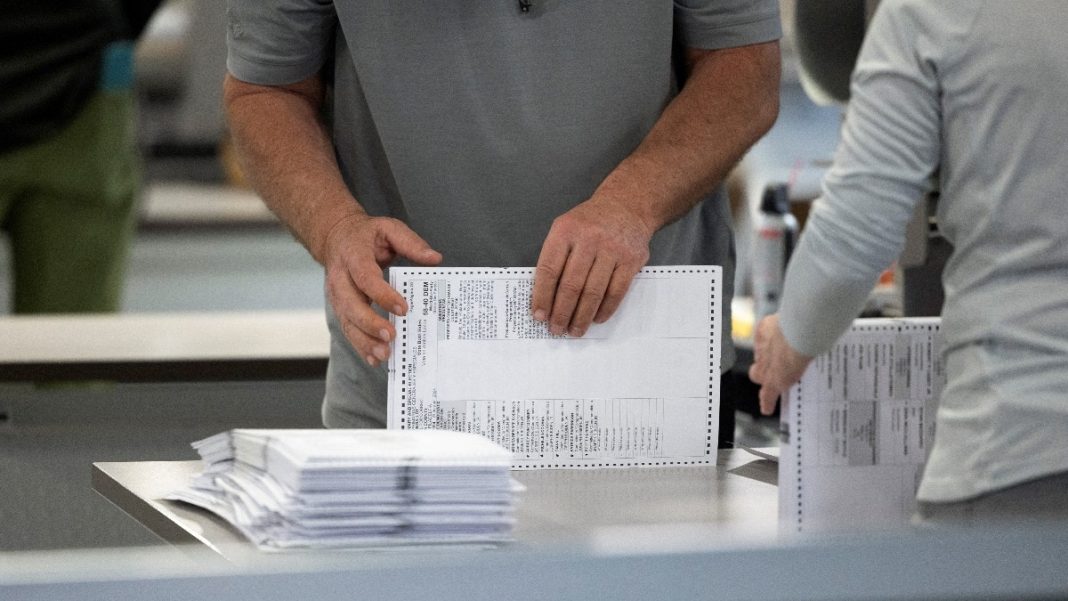Trump Allies Target Deloitte Following Leaked Messages
In a surprising turn of events, allies of former President Donald Trump are calling for repercussions against Deloitte, a major consulting firm, after an employee allegedly shared private messages with Republican Senator JD Vance. This incident has sparked a wave of criticism and threats aimed at the firm, highlighting the ongoing tensions between Trump’s camp and corporate America.
The controversy erupted after The Washington Post published a story on September 27 revealing that Vance had expressed dissatisfaction with Trump’s economic performance in a private message from 2020. The leaked messages, which did not disclose the identity of the Deloitte employee involved, have ignited a firestorm of backlash from Trump supporters, who are now demanding that the federal government take action against the consulting giant.
Donald Trump Jr., the former president’s eldest son, wasted no time in responding to the situation. He took to social media to identify the Deloitte employee, suggesting that the firm should face consequences for the leak. “Maybe it’s time for the GOP to end Deloitte’s taxpayer-funded gravy train?” he tweeted, referencing the billions of dollars in government contracts the firm receives. His comments were quickly amplified by Vance’s spokesperson and Trump campaign adviser Jason Miller.
Deloitte, which reportedly received around $3 billion from the federal government in fiscal 2024, has found itself in the crosshairs of Trump’s political machine. The firm has been accused of harboring employees who allegedly conspire against the former president, with Trump Jr. questioning whether Deloitte would respond to the “outrageous” scandal.
Despite the uproar, neither Trump nor Vance has made direct threats against Deloitte. However, the situation underscores a broader trend of Trump and his allies targeting major American companies that they perceive as adversaries. This pattern raises concerns about the potential for political retribution against businesses that do not align with Trump’s agenda, should he return to the White House.
Critics of Trump’s tactics, including Jeffrey Sonnenfeld, founder of the Yale Chief Executive Leadership Institute, have condemned the attacks on Deloitte as “outrageous” and indicative of Trump’s inappropriate behavior as a candidate. “It shows how irresponsible he and his family would be if he’s back in office,” Sonnenfeld stated.
Richard Painter, a former ethics lawyer under President George W. Bush, described the attacks on Deloitte as “shameful” and suggested that Trump Jr. is acting as a proxy for his father’s retaliation. Painter emphasized that federal contracting should be based on merit, not political allegiance, arguing that punishing Deloitte for an employee’s actions would constitute an abuse of power.
In response to the backlash, a Deloitte spokesperson clarified that the employee acted independently and that the firm remains committed to serving clients across the political spectrum. However, the company has not disclosed whether any disciplinary action will be taken against the employee involved in the leak.
As the situation unfolds, it remains to be seen how Deloitte will navigate the political minefield created by Trump and his allies. The incident serves as a stark reminder of the potential consequences for businesses that find themselves at odds with the former president’s camp, raising questions about the intersection of politics and corporate America in today’s landscape.
In a climate where political affiliations can lead to corporate repercussions, the implications of this incident extend beyond Deloitte, signaling a troubling trend that could affect how businesses operate in the future.



